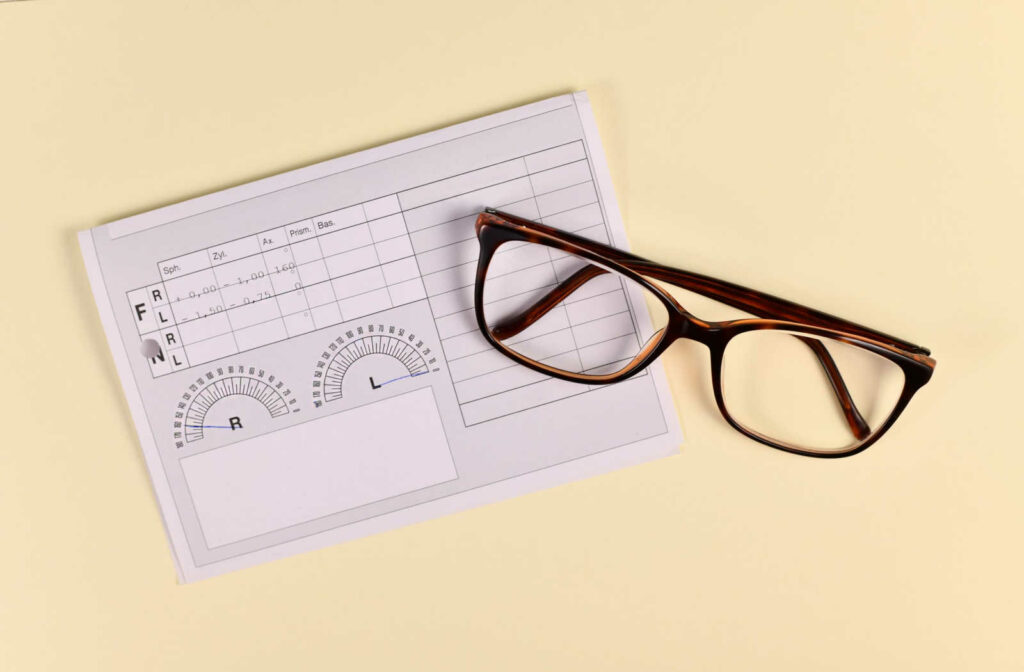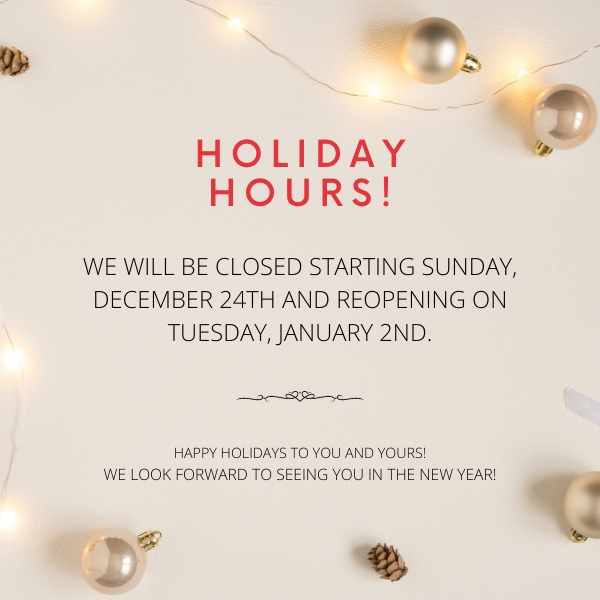Vision is one of the most important senses, and a pair of glasses or contact lenses can make all the difference in your day-to-day activities. If you are experiencing distorted or blurry vision, then a proper eyeglass prescription can help to correct these problems.
It is normal for your eye prescription to change over time and at its own pace. No set timeline determines when your eyes will change; instead, it varies based on the individual.
At Avenue Optometry & Vision Therapy, we recommend regularly booking an eye examination with one of our experienced optometrists to detect any changes in your prescription and help you properly care for your eyes.
How Long Will it Take for a Prescription to Change?
There is no correct answer as to how long it may take for an eye prescription to change. It depends on the individual and some determining factors like family medical history, lifestyle choices, and natural aging. Therefore, it is normal for your eye prescription to change annually, bi-annually or even longer.
Is a Sudden Change in Eye Prescription Something to Worry About?
Suppose you face a sudden change in your vision or are experiencing recurring symptoms like double vision, blurry vision, red eyes, or headaches. In that case, booking a consultation with your eye doctor is essential.
Your optometrist has access to essential tools that can examine your eyes and provide insight into any conditions or issues causing these symptoms and changes.
Nonetheless, here are some reasons why your eye prescription might change faster than typical:
- You’re pregnant
- You have diabetes
- You are experiencing dry eyes
- You may be taking medications that cause changes in vision
How Frequently Should You Get Your Eyes Examined?
We recommend attending eye exams regularly and booking an examination annually. At Avenue Optometry & Vision Therapy, our mission is to remove stress and provide a comfortable patient experience.
Here are some of the reasons to book a routine eye exam regularly:
- Monitor prescription changes
- Check for any ocular conditions or illnesses
- Check for other underlying general health issues
What Might Change Your Prescription?
There are many reasons why your eye prescription might change. Nonetheless, here are some of the common eye conditions that can happen naturally and as you age:
- Myopia (Nearsightedness): A common vision issue where far away objects appear blurry.
- Hyperopia (Farsightedness): A common vision issue in which nearby objects appear blurry.
- Cataracts: A common condition in older people that causes hazy or blurry vision due to a cloudy area in your eye’s lens.
- Age-related degeneration: An eye disease that can blur your central vision. It comes from damage to the macula and is a common condition in older adults.
- Presbyopia: A common condition in older adults that affects the eye’s ability to focus on nearby objects.
- Astigmatism: A common issue with the eyes’ shape, which leads to blurred vision.
5 Signs You Need New Glasses
At Avenue Optometry, we recommend getting an eye examination every year, which can often mean changing the lenses in your glasses or even getting a new pair.
- Your glasses are giving you headaches
- You have to squint to see with your glasses on
- You’ve had the same pair of glasses for years
- You’re experiencing double vision when looking through your glasses
- Your current glasses are damaged or scratched
Start by booking your eye examination and check out all the glasses that our North York clinic offers.
Some Types of Glasses to Consider?
Standard Glasses
Standard glasses are the most common choice for people experiencing myopia, hyperopia, astigmatism or other refractive issues that want to see clearer. These glasses typically come with a metal or acetate frame that are fitted with personalized lenses to correct your vision.
Reading Glasses
Reading glasses are generally used by people hoping to fix presbyopia. They are great for helping with up-close tasks like reading, writing, or looking at your phone.
UV Glasses
The sun can damage your eyes, and it may be worth picking up a pair of glasses that protect you from ultraviolet radiation (UV). Overexposure to the sun and ultraviolet radiation hitting the eyes can lead to cataracts, eye cancer, and other harmful eye conditions.
Tips for Keeping Your Eyes Safe
Here are a few simple ways that you can follow to keep your eyes safe and healthy:
- Take breaks when working with a screen to prevent eye strain
- Wear sunglasses when you are outside in the sun and protective gear when playing sports or working with heavy machinery
- Maintain a healthy diet
- Try and avoid unhealthy habits like smoking
- Properly clean your hands, contact lenses, and glasses before allowing them to come in contact with your face
Book a Consultation
A regular eye exam from a trained professional is a great way to keep on top of your health and feel assured that your eyes are in excellent condition. Our friendly staff at Avenue Optometry & Vision Therapy will be happy to help you book your next appointment!




